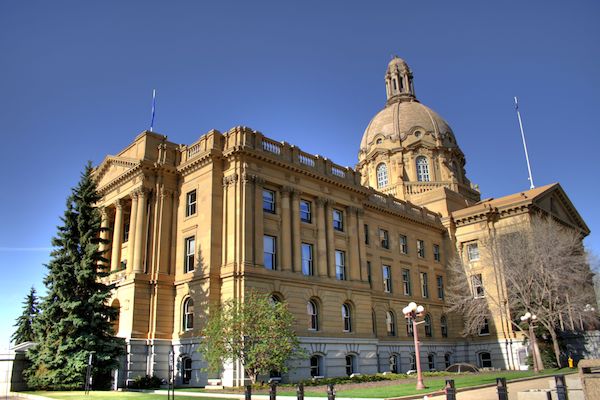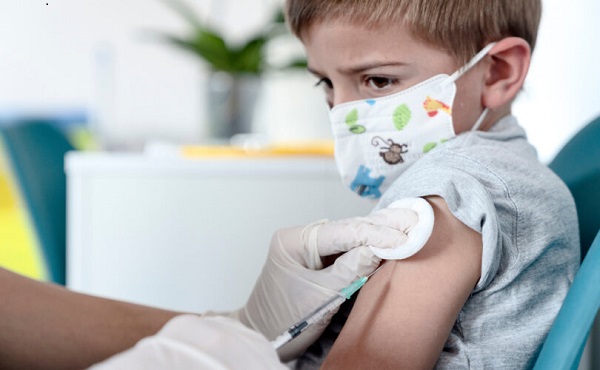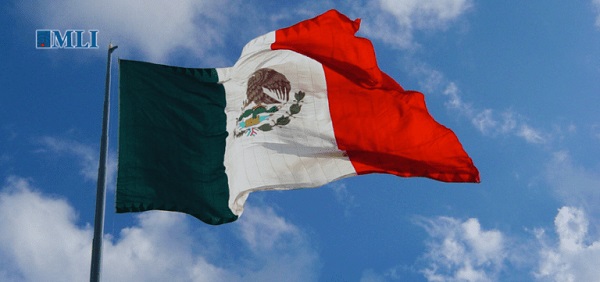Alberta
Protecting vulnerable Albertans this winter

Alberta’s government is investing an additional $21.5 million for Albertans experiencing homelessness and family violence.
The pandemic continues to have a large impact on vulnerable people, and this funding will ensure access to services like 24-7 emergency shelter and support for victims of domestic violence while keeping clients safe.
The government announced this additional support at the Hope Mission at the Herb Jamieson Centre. Alberta’s government fulfilled a platform commitment with $4 million for the centre’s recent construction. This announcement furthers those efforts to support vulnerable people in Alberta.
Alberta’s government is also providing $1.5 million to activate up to 200 additional shelter beds at Commonwealth Stadium and will support on-site overdose prevention and treatment services.
“As we continue to navigate through COVID, one of our top priorities is to make sure all Albertans have a safe place to stay and access to the support they need. Together with the $78 million previously announced by Alberta’s government, this additional funding will help organizations on the front lines deliver the services vulnerable Albertans need.”
“Our community partners are critical to making sure people experiencing homelessness and domestic violence have safe places to stay and where they can still access the supports they need. This funding will go a long way to ensure shelters are providing Albertans with critical supports in a healthy environment.”
“A quick look outside the window, and you’ll see how important this announcement is to the houseless Edmontonians who were looking for a warm place to sleep during this winter. We have identified the shelter gap in recent meetings with the Premier and his ministers, and they have responded by providing emergency funding for the Spectrum shelter, three needed southside shelters and our enhanced capacity emergency shelter at Commonwealth Stadium. We welcome this support and look forward to building on this collaboration to find more permanent and sustained solutions to end houselessness in Edmonton.”
“The Calgary Drop-In Centre has been on the front line of the COVID-19 pandemic, working with our community partners to decrease the spread within our city’s homeless population. We are grateful to our partners at the Government of Alberta for the additional funding, which will support medical staff and overflow spaces to meet the increased demand at our main shelter.”
“This funding will allow us to maintain extra capacity during the critical winter season. With the unpredictability of COVID-19, we will be able to keep people safe and socially distanced. Thank you to the provincial government for equipping us with extra capacity to serve everyone who needs safe, warm shelter during the cold of Alberta’s winter.”
The $21.5-million funding package will be distributed as follows:
- $13 million for emergency homeless shelters
- $6.5 million for isolation facilities
- $2 million for emergency women’s shelters
Emergency homeless shelters
Funding will support 14 expanded homeless shelter facilities to meet physical distancing requirements. Funding will also support, where possible, 24-7 access to regular meal service, showers, laundry services and connection to addictions and mental health services and housing.
Isolation facilities
Funding will support about 285 isolation spaces in 10 communities. These facilities are a critical component of the shelter pandemic response, and help alleviate pressure in the public health system by helping shelter clients who contract COVID-19 isolate and receive medical care if hospitalization is not required. Additional capacity may be added in some rural communities as needed.
Emergency women’s shelters
This funding will support service delivery adjustments at emergency women’s shelters. Due to the pandemic, there has been an increase in domestic violence across Alberta. This funding will help shelter operators offer more support through community outreach and virtual service delivery as well as hotel isolation, and adjust in-shelter services to align with public health orders.
Quick facts
- This funding guarantees these supports will be in place until March 2022.
- This funding is in addition to $78 million announced in 2020.
- Funding will support emergency homeless shelters in Edmonton, Calgary, Red Deer, Grande Prairie, Medicine Hat, Lethbridge, Lloydminster, Drayton Valley, Leduc, Slave Lake and Wetaskiwin.
- The 10 isolation sites are located in Calgary, Edmonton, Fort McMurray, Grande Prairie, Lethbridge, Medicine Hat, Red Deer, Wetaskiwin, Peace River and Lac La Biche.
- With the additional capacity at Commonwealth Stadium, up to 1,280 emergency shelter beds will be available in Edmonton this winter.
- The shelter is anticipated to be operational in early December once an operator has been selected.
Alberta
On gender, Alberta is following the science

Despite falling into disrepute in recent years, “follow the science” remains our best shot at getting at the truth of the physical sciences.
But science, if we are to place our trust in it, must be properly defined and understood; it is at its essence an ever-changing process, a relentless pursuit of truth that is never “settled,” and one that is unafraid to discard old hypotheses in the face of new evidence.
And it is in this light—in the unforgiving glare of honest science—that Alberta Premier Danielle Smith’s three new legislative initiatives around gender policy are properly understood, notwithstanding the opprobrium they’ve attracted from critics.
Bill 26, the Health Statutes Amendment Act, proposes to prohibit the prescription of puberty blockers and cross-gender hormones for the treatment of gender dysphoria to youth aged 15 and under. It would allow minors aged 16 and 17 to begin puberty blockers and hormone therapies for gender “reassignment” and “affirmation” purposes only with parental, physician, and psychologist approval. The bill also prohibits health professionals from performing sex reassignment surgeries on minors.
Bill 27, the Education Amendment Act, seeks to enshrine parents’ rights to be notified if their kids change their names/pronouns at school, and it gives parents the right to “opt in” to what sort of gender and sex education their kids are exposed to in school.
And Bill 29, the Fairness and Safety in Sports Act, is designed to protect females in sports by ensuring that women and girls can compete in biological female-only divisions, while supporting the formation of co-ed opportunities to support transgender athletes.
Each of these initiatives is entirely reasonable, given what we know of the science underpinning “gender care,” and of the undeniable advantages that a male physique confers upon biological males competing in sports.
The notion that the trifecta of puberty blockers, cross-gender hormones, and revisionist surgery is a pathway to good health was a hypothesis initially devised by Dutch researchers, who were looking to ease the discomfort of transgender adults struggling with incongruence between their physical appearance and their gender identities. As a hypothesis, it was perhaps reasonable.
But as the UK’s Cass Review exposed in withering detail last spring, its premises were wholly unsupported by evidence, and its implementation has caused grievous harm for youth. As Finnish psychiatrist Riittakerttu Kaltiala, one of the architects of that country’s gender program, put it last year, “Gender affirming care is dangerous. I know, because I helped pioneer it.”
It’s no accident, then, that numerous European jurisdictions have pulled back from the “gender affirming care” pathway for youth, such as Sweden, Finland, Belgium, the Netherlands, and the United Kingdom.
It makes perfect sense that Canadians should be cautious as well, and that parents should be apprised if their children are being exposed to these theories at school and informed if their kids are caught up in their premises.
Yet the Canadian medical establishment has remained curiously intransigent on this issue, continuing to insist that the drug-and-surgery-based gender-affirming care model is rooted in evidence.
Premier Smith was asked by a reporter last month whether decisions on these matters aren’t best left to discussions between doctors and their patients; to which she replied:
“I would say doctors aren’t always right.”
Which is rather an understatement, as anyone familiar with the opioid drug crisis can attest, or as anyone acquainted with the darker corners of medical history knows: the frontal lobotomy saga, the thalidomide catastrophe, and the “recovered memories of sexual abuse” scandal are just a few examples of where doctors didn’t “get it right.”
As physicians, we advocate strongly for self-regulation and for the principle that medical decisions are private matters between physicians and patients. But self-regulation isn’t infallible, and when it fails it can be very much in the interests of the public—and especially of patients—for others to intervene, whether they be journalists, lawyers, or political leaders.
The trans discussion shouldn’t be a partisan issue, although it certainly has become one in Canada. It’s worth noting that Britain’s freshly elected Labour Party chose to carry on with the cautious approach adopted by the preceding administration in light of the Cass Review.
Premier Smith’s new polices are eminently sensible and in line with the stance taken by our European colleagues. None of her initiatives are “anti-trans.” Instead, they are pro-child, pro-women, and pro-athlete, and it’s difficult to see how anyone can quibble with that.
Dr. J. Edward Les, MD, is a pediatrician in Calgary, senior fellow at the Aristotle Foundation for Public Policy, and co-author of Teenagers, Children, and Gender Transition Policy: A Comparison of Transgender Medical Policy for Minors in Canada, the United States, and Europe.
Alberta
Alberta mother accuses health agency of trying to vaccinate son against her wishes

From LifeSiteNews
Alberta Health Services has been accused of attempting to vaccinate a child in school against his parent’s wishes.
On November 6, Alberta Health Services staffers visited Edmonton Hardisty School where they reportedly attempted to vaccinate a grade 6 student despite his parents signing a form stating that they did not wish for him to receive the vaccines.
“It is clear they do not prioritize parental rights, and in not doing so, they traumatize students,” the boy’s mother Kerri Findling told the Counter Signal.
During the school visit, AHS planned to vaccinate sixth graders with the HPV and hepatitis B vaccines. Notably, both HPV and hepatitis B are vaccines given to prevent diseases normally transmitted sexually.
Among the chief concerns about the HPV vaccine has been the high number of adverse reactions reported after taking it, including a case where a 16 year-old Australian girl was made infertile due to the vaccine.
Additionally, in 2008, the U.S. Food and Drug Administration received reports of 28 deaths associated with the HPV vaccine. Among the 6,723 adverse reactions reported that year, 142 were deemed life-threatening and 1,061 were considered serious.
Children whose parents had written “refused” on their forms were supposed to return to the classroom when the rest of the class was called into the vaccination area.
However, in this case, Findling alleged that AHS staffers told her son to proceed to the vaccination area, despite seeing that she had written “refused” on his form.
When the boy asked if he could return to the classroom, as he was certain his parents did not intend for him to receive the shots, the staff reportedly said “no.” However, he chose to return to the classroom anyway.
Shortly after, he was called into the office and taken back to the vaccination area. Findling said that her son then left the school building and braved the sub-zero temperatures to call his parents.
Following his parents’ arrival at the school, AHS claimed the incident was a misunderstanding due to a “new hire,” attesting that the mistake would have been caught before their son was vaccinated.
“If a student leaves the vaccination center without receiving the vaccine, it should be up to the parents to get the vaccine at a different time, if they so desire, not the school to enforce vaccination on behalf of AHS,” Findling declared.
Findling’s story comes just a few months after Alberta Premier Danielle Smith promised a new Bill of Rights affirming “God-given” parental authority over children.
A draft version of a forthcoming Alberta Bill of Rights provided to LifeSiteNews includes a provision beefing up parental rights, declaring the “freedom of parents to make informed decisions concerning the health, education, welfare and upbringing of their children.”
-

 Brownstone Institute3 hours ago
Brownstone Institute3 hours agoThe Most Devastating Report So Far
-

 Economy15 hours ago
Economy15 hours agoCOP 29 leaders demand over a $1 trillion a year in climate reparations from ‘wealthy’ nations. They don’t deserve a nickel.
-

 Alberta13 hours ago
Alberta13 hours agoOn gender, Alberta is following the science
-

 Energy14 hours ago
Energy14 hours agoOttawa’s proposed emission cap lacks any solid scientific or economic rationale
-

 Bruce Dowbiggin2 hours ago
Bruce Dowbiggin2 hours agoCHL Vs NCAA: Finally Some Sanity For Hockey Families
-

 Brownstone Institute1 day ago
Brownstone Institute1 day agoFirst Amendment Blues
-

 Crime2 days ago
Crime2 days agoMexican cartels are a direct threat to Canada’s public safety, and the future of North American trade
-

 Business2 days ago
Business2 days agoDEI gone?: GOP lawmakers prep to clean house in federal government




